How can you tell if your fitness facility is worth the membership? Know what to look for when you join a new gym and you'll get the best deal.
If you're looking for a good gym, where can you get the help and guidance you need? Are there motivated and happy staff to look after you? Or will you have your first induction, only to become abandoned and left to flounder in a sea of shiny equipment, without an instructor in sight?
More...
For many people January is all about a new start. Alongside cutting back on booze and quitting smoking joining a gym is one of the most popular ways of turning over a new leaf.
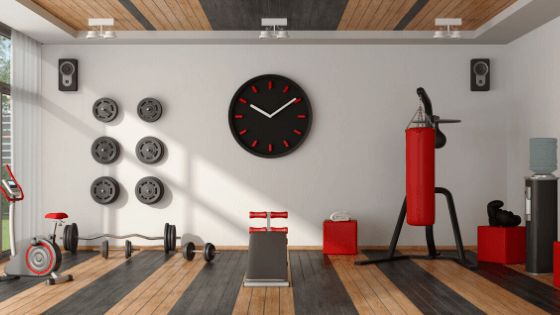
Did you know, 20 years ago in the UK - 81% of new January members had ditched their membership by July?
Even more alarming most continued paying for the facility for up to four months after they'd stopped using it.
I can think of no other service industry where people continue paying for a product they don't use. The advent of Direct Debits made the health club industry. If you physically had to hand over cash or a cheque every month there is no way so many people would continue to pay.
Before joining a new club this January ensure it's location, facilities and membership package are 100% right for you. In doing so you'll maximise the chance of getting the most out of your membership fee.
Location of the gym and its proximity to your home or work
The first thing to look for when you join a gym is location.
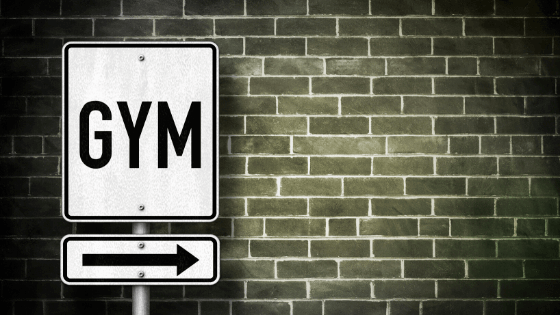
Any additional travel time on top of your normal day is a reason not to go to the gym. A twenty minutes walk out of your way on a cold, wet and dark winter's morning is a very different proposition than in the summer.
A gym on-route between home and work is the ideal. If you have to pass it every day anyway you're much more likely to use it.
Also, if the gym is part of a chain, check whether your membership entitles you to use others in the chain. If your gym happens to be near to your work what are you going to do at the weekend?
The first thing to consider is location. Any additional travel time on top of your normal day is a reason not to go to the gym
When joining a new gym, look at the facilities offered
The next thing to think about is what you want out of the club.
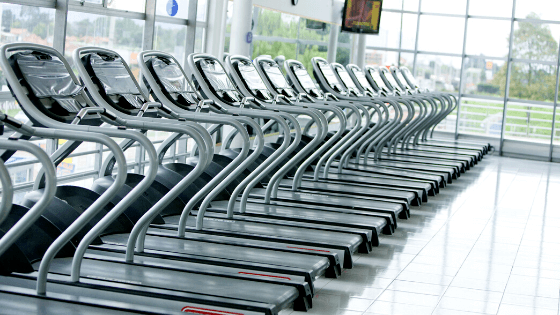
If you simply want a gym to train in it might be worth looking at some of the public facilities or sports clubs near you. Many of these have been revamped in recent years and can provide an excellent and cheaper alternative to private clubs.
If classes are your thing are they included in the membership fee and what variety is on offer? Conversely if you know you'll never go to a class there is very little point in joining a club with classes included as you'll just be paying for something you don't use.
READ ALSO: What to expect from a BodyAttack class
Don't be seduced by luxury pool or spa facilities
If you're going to be fitting a workout into a busy working day are you going to have time to wallow? Pools are often top of many people's health club tick list but, in reality, actually see very little use. Be honest with yourself, are you really going to use one? If not you can guarantee a club with a pool will charge a lot more than one without.
The same applies to tennis and squash courts.
Think about the type of workout and training you typically do then look to see whether the facilities will be able to accommodate it.
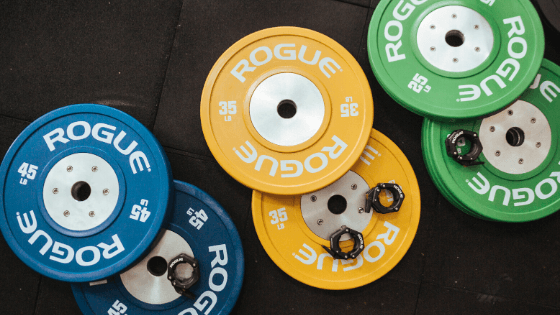
Always go and look around gyms at the times that you'd typically be going at. It's great for a gym to be busy and to have a buzz to it but queuing for kit is no fun.
While looking around check to see that everything is clean and tidy. Pay particular attention to toilet and changing facilities. If those aren't being looked after you can guarantee that the gym kit will be poorly maintained.
If you're a parent, find out whether there is a crèche. This could easily be the single biggest factor between you going to the gym or not. If you're looking for the gym to be a social outlet as well check whether there are cafe/bar facilities on-site and if social events are a regular occurrence.
Look for a strong gym induction and on-boarding process
Look at what is on offer with regards to inductions, fitness testing and training advice. A full tour of the facilities including a demonstration of all the equipment by a qualified instructor is the very least I'd expect.
Ideally though I'd want a personal appointment with an Instructor/Personal Trainer covering the following areas:
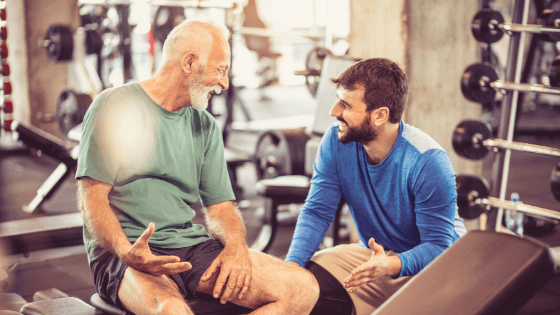
Health and suitability to exercise:
Asking about any current or long-term health or injury issues that may affect your ability to train and how to modify your training in order to accommodate them.
Exercise History:
What you've done in the past, what you enjoy doing and how much time you can exercise.
Nutrition:
Not essential but good to go through a typical days diet and have any obvious mistakes pointed out. Even better is to have pre-submitted a food diary.
Fitness and/or health testing:
As an absolute minimum this should include height and weight from which a BMI value can be calculated resting heart-rate and blood pressure. I'd also like to see a body composition reading taken, a lung volume test measuring peak flow, a sub-maximal test of cardiovascular fitness and a flexibility or range of movement test.
Goal setting:
Based on the results from the testing and your own personal objectives and number of short and long term goals should be agreed on.
Programme design:
A personalised training plan including a gym routine should be constructed for you. Any exercises you are unsure of should be demonstrated and any other questions answered.
Follow Up:
Re-testing after a set period such as 4-8 weeks and a reevaluation of goals and training.

Although this may seem like a lot it can easily be covered in an hours consultation and will allow you to begin training safely and effectively.
Many clubs will offer this type of service as part of your membership and some will also include a number of Personal Training sessions. Some clubs offer much more comprehensive health screening usually in partnership with a service provider or health insurance company. However, it is very unlikely that you'd get such comprehensive screening included in your membership so remember to factor in any additional costs if this is an important area for you.
On-going member support is a good thing to ask about and look out for when you join a gym
Although a good screening and induction procedure is important, it's the long-term support on offer that will really determine how much progress you make
Not just after your induction, but right throughout your membership. Some clubs carry out reassessment and reprogramming every few months as a matter of course. While this is a good sign, real support should be on-going all the time.
You really want instructors who will come up to you and give you support and encourage in between your booked appointments. A good sign is a staff who know everybody's name and greet them when they enter the gym.
Price of the fitness facility membership
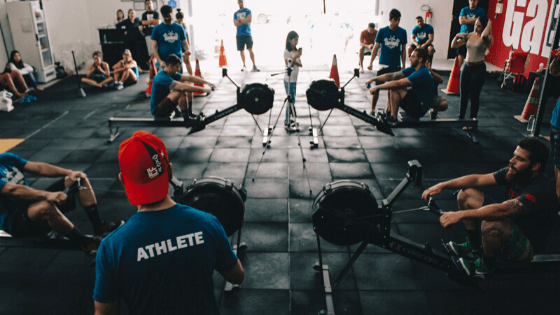
It's competitive out there so don't pay over the odds unless you're convinced the club offers something special. If you're already a member of a club that you like, ask what deal they'll give you if you renew.
Cost-wise it can be extremely difficult to find out membership costs without having an appointment with a member of the club's sales team. Stand firm on this point and, if they won't disclose fees over the phone or online, take your business elsewhere.
Ask about hidden extras, often referred to as "administrative charges" such as having to pay for a compulsory induction, paying for classes or paying for towels or changing facilities.
Don't be afraid to barter, remember they want your business.
Gym membership contract - look for the fine print and read before you join
Take time to look over the contract and ensure you can cancel it without any sort of penalty. If you do ever cancel your membership do it as quickly as possible to avoid paying for an extra month. Do it by e-mail rather than phone and insist on a reply to confirm your membership is cancelled.
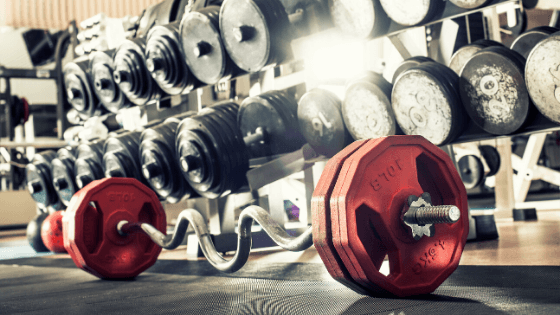
All responsibility for cancelling membership and any direct debits rests with the member so don't assume anything will be done for you. Be wary of signing anything that looks like a credit agreement unless you are completely happy with all of the ramifications of it.
A twelve-month contract will often be cheaper than paying month by month but will tie you in. Once again be honest about how often you'll use the facility and work out which package will be cheapest for you.
Membership duration
Avoid very long memberships unless the club is firmly established and you're already a satisfied member.
Membership transfer and refund policies
How sympathetic will the club be to a change in your circumstances? If illness, injury or a job move forces a change in your training routine, what are your options? A good club will be sympathetic to genuine circumstances. They should, at the very least, enable you to freeze or sell on your membership.
Ask about hidden extras, often referred to as "administrative charges" such as having to pay for a compulsory induction, paying for classes or paying for towels or changing facilities.
Joining Fee
If you're charged a fee to limit numbers and prevent crowded facilities, it can be a good thing. If it's about generating an air of 'exclusivity' then it's generally a bad thing.
In my opinion joining fees are one of the biggest scams in the health and fitness industry.
They only seem to exist so that they can be removed during "special offer" periods.
You are already paying a monthly membership fee so what does the mysterious joining fee actually pay for?
With so many gyms and health clubs around offering no-joining fee memberships you are in a strong bargaining position.

Try it and see
Once all of the boxes above are ticked to your satisfaction ask whether it'd be possible to have some guest passes or a trial membership period before committing yourself to a contract. If the club is confident in the service it offers and that it is right for you there is no good reason for them not to agree to this.
Trial membership
It's reasonable to have some sort of free trial. You're asked to commit to and shell out a lump sum for a membership - ask to try before you buy. The worst they can do is say 'No.'
Quality and Quantity of Gym Staff
Many people thinking of joining a gym (understandably) tend to focus on the facilities on offer.

If you're simply after a pleasant training environment packed with lots of high-tech gear, that's all well and good. But if you're looking for a gym where you can draw on the skills and expertise of others to become fitter and healthier, there are far more important considerations.
Number one of which is the staff.
The reality is that a fitness facility is only as good as its staff. When you look to join a gym, the staff can make or break the deal. After all, it's the instructors running the gym who will determine how rewarding and productive your membership is.
They can guide you, motivate you and monitor you — not just at the beginning, but more importantly, after a few weeks or months. When the initial enthusiasm and novelty begins to wear off.
One of the most worrying facts to emerge in research into the fitness industry is the dreadful pay and conditions that many instructors have to endure. This inevitably leads to demoralisation, demotivation and disillusionment among the staff. The standards of service to members can inevitably suffer.
If you're new to fitness and need extra support and encouragement, here are a few pointers to look out for:
Staff demeanour is a big factor and something I always advise friends to look at before they join a gym
The attitude and demeanour of the staff can tell you a lot about a gym.
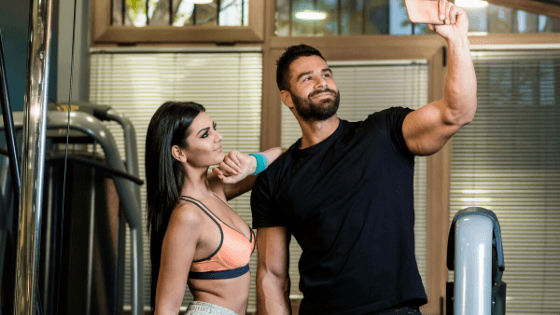
Happy staff are well-motivated and enthusiastic. Unhappy or demoralised staff are likely to ignore you once you're inducted through the 'system'. Ideally, you should ask for a free trial, during which you should be able to pick up some vibes.
If the gym doesn't offer a trial, find someone who is a member and ask them what the staff are like. Do they seem happy?
Staffing levels
Understaffing is one of the major shortcuts some of the big gym chains use to reduce costs.
But at peak times, even the most dedicated instructor won't be able to give you any individual attention if he or she is the only person on duty. At the very least you need someone to take care of appointments and someone else 'floating' to offer support and guidance.
If the gym is large, you really need several 'floating' instructors.
Gym staff turnover
Poorly paid and demotivated staff don't hang around long.

Rapid staff turnover is a bad sign, not least because you'll never have time to get to know the instructors, which is extremely important when it comes to program development and adherence.
Gym instructor experience
Fitness qualifications can only take you so far.
Many of the communication and motivational skills only come after months or years on the job. Gyms that only employ very young and newly qualified staff may not offer enough to attract and retain experienced staff. Such a gym is unlikely to care much about its clients' needs.
When you join a gym, look for well qualified staff
Don't be afraid to ask. As an absolute minimum, they should have a nationally accredited certification in exercise and gym instruction. At least some of the staff should be qualified to a higher level and offer true personal training.
Trainees
Some of the less scrupulous clubs out there practice cost-cutting by using young trainees to staff the gym without adequate supervision. While bringing young fitness teachers into the industry is great, these trainees should only be on the floor in addition to the qualified members of staff. Sadly this is not always the case.

If you're considering joining a gym, speak to other members, especially members who joined as beginners and ask how encouragement and support they've received over the months — not only in terms of appointments but also during their everyday training.
Although add-on extras such as fitness testing and nutritional guidance are motivational, it's the day-to-day support on the gym floor that really makes the difference!
